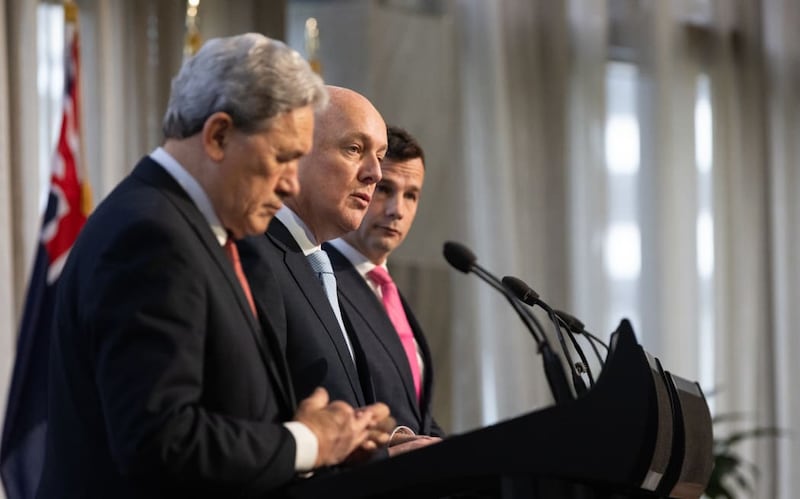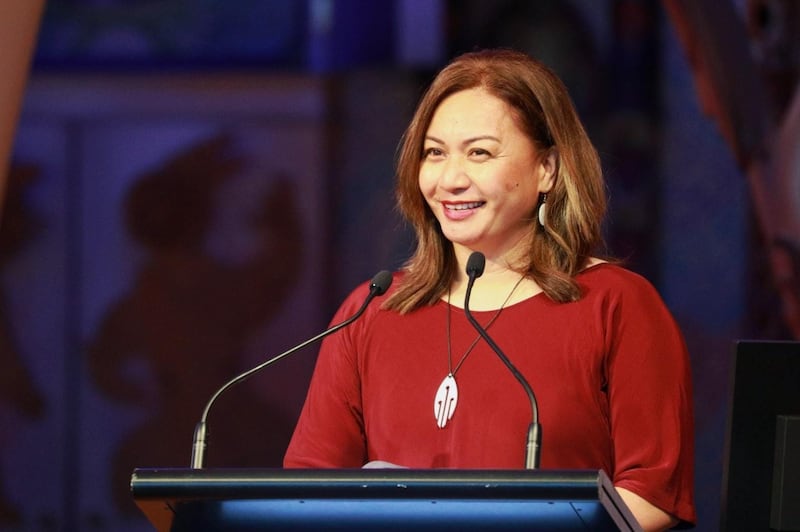Experts say the new government has taken a step backward from ending sexual violence in Aotearoa with its plan to remove and replace relationship–based education.
As part of a New Zealand First coalition deal, the government wants to refocus the curriculum on academic achievement, including the removal and replacement of the gender sexuality and relationship-based education guidelines.
Sexual harm prevention expert Russell Smith says removing relationship-based education, including consent education, could be devastating.
Smith is a member of Ngā Kaitiaki Mauri Taumata TOAH-NNEST, New Zealand’s kaupapa Māori national sexual harm prevention organisation. He’s also the co-director and senior clinician at Korowai Tumanako, which provides therapeutic services for children and adolescents with sexually harmful behaviour and adults who have sexually offended children.
He says a lot of the people he’s helped had wished they learned about consent and healthy relationships at school because, if they had, it may have prevented the harm that had occurred.
“It’s not only about the consent and understanding and the dynamics of consent, it is also about what a healthy relationship looks like. When you know what a healthy relationship looks like and you know clearly, then it’s easier to spot an unhealthy relationship,” he says.
Smith says one in four girls and one in six boys are statistically affected by sexual violence before the age of 16, and it’s particularly concerning for Māori.
“We are twice as affected by this type of harm than others in the community and then you’ve got Māori who don’t have access to education and support. So it will be quite harmful if you remove this from the curriculum or from education,” Smith says.
Sexual violence costs $6 billion per year
Smith says sexual violence costs the government at least $6 billion a year, “when you look at all of the ministries that are involved with the effects of sexual violence; correction etcetera.”
He says the government needs to take a non-partisan approach to reduce sexual harm, where all parties work together on the issue instead of working on policies that only suit one party’s goals.
“When you start to strip out education specifically around consent, around gender, what you start to do is disestablish some of the knowledge that young people and older people like ourselves need to know to give a broader perspective of healthy relationships,” Smith says.
“This country has made billions of dollars from the unwellness of our people. You can just look at the Corrections budget. You can look at Oranga Tamariki’s budget. You can look at the Ministry of Justice budget and you work out how many Māori are in that system. [If] you start reducing that you’ll see wealth and if you put prevention at the front end of that, even better.”

Coalition deal
As part of the proposed changes, Education Minister Erica Stanford tells Te Ao News in a statement that, “the coalition commitment with New Zealand First is to re-write the guidelines that supplement the sex-education curriculum because of concerns from parents regarding their age-appropriateness.”
The most recent nationwide programme teaching teenagers about consent and healthy relationships in schools was Mates and Dates. It was funded by ACC but was axed at the end of 2022.
Stanford says Mates and Dates started during the last National government and there are no plans to discontinue similar programmes.
Her response does not make any mention of new programmes in the pipeline.
Prime Minister Christopher Luxon says, “What we’re sort of saying is sex education is an important role for parents to play. It’s also an important role for schools and that will continue. All of that has been raised with us over the course of the last year about some of the sexuality training and all we’re asking for is because we’ve been caught between the curriculum. We want a well-defined curriculum agreed to by experts that actually makes sure that the content is age appropriate.”

Green Party co-leader and former minister for the prevention of family violence and sexual violence Marama Davidson says the decision to remove and replace the gender sexuality and relationship-based education guidelines is “nonsense”.
“I really don’t understand. They are trying to appeal to a small very conservative section of the community who are up in arms about this being taught in schools and that is dangerous,” she says.
“Schools have one of the biggest roles to play, one of the biggest contributions to make when it comes to our rangatahi understanding what healthy relationships look like so I’m really concerned and I will be here to fight against that being removed.”
‘We should all be really concerned’ - Marama Davidson
Davidson also says the plans go against the action of Te Aorerekura, a national strategy to eliminate family violence and sexual violence launched in 2021.
“Some of the key actions in that strategy require schools to know their role when preventing violence and the fact is this government is looking as if it wants to remove all of that work. We should all be really concerned and really worried.”
Labour leader Chris Hipkins agrees and says teaching students about healthy relationships is important to prevent sexual violence among teens.
“I think we’ve seen horrific events like the ‘roastbusters’ event some years ago so we need to have honest conversation with young New Zealanders about what healthy sexual relationships look like, about what consent actually means,” he says.
Report shows schools struggling to support students
A report by social impact organisation Let’s Talk Consent recently revealed how schools are struggling to provide a safe environment for students who have been sexually abused.
The report, Youth experiences of sexual violence in Aotearoa New Zealand, includes testimonies from 300 youth, with 288 describing horrifying experiences of sexual violence, including rape, assault and harassment.
Harrowing testimonies
“For some, this was almost daily harassment normalised within their school’s culture. For others, it was brutal, forceful, and left them injured, anxious, in pain and too afraid to speak about. Some students described pack rape by groups of young men without any consequences faced,” the report says.
Let’s Talk Consent co-founder Genna Hawkins-Boultan, from Ngāti Kahumate, led the report. She says youth who had experienced sexual violence did report their abuse to school staff but “didn’t really get offered pathways to justice”.
“There was no learning assistance offered and they found themselves in the same classes as the people they had reported, which is very concerning considering when we think about re-traumatisation among victims.”
The report has also made two recommendations to the Ministry of Education. The first is to reform current schools’ duty of care guidelines and National Education and Learning Priorities (NELP) priorities to explicitly include a zero-tolerance approach to sexual violence.
“We have harassment, bullying really nothing explicit about sexual violence and I think that’s a really important step to make sure that these kinds of experiences are validated and they are approached in a trauma-informed way as well,” Hawkins-Boultan says.
The second recommendation is to make whole-school approaches to consent-based learning a compulsory part of the secondary school curriculum.
“We saw that, in the number of people surveyed, 54 per cent did get consent education. Seventy-two percent didn’t believe it was adequate enough and so a big recommendation for us is making sure sexual violence prevention specialists are consulted in the upcoming refresh of relationship sexuality guidelines.”
Hipkins says, “We need to make sure that our schools are safe places for all of our young people, that young people can be who they are when they go to school and they don’t have to pretend to be someone that they’re not. I think the proposals the government are putting forward to wind back the progress that’s being made in that area are very concerning.”
More to come. For more on this story watch Te Ao Marama on Friday, November 1.


